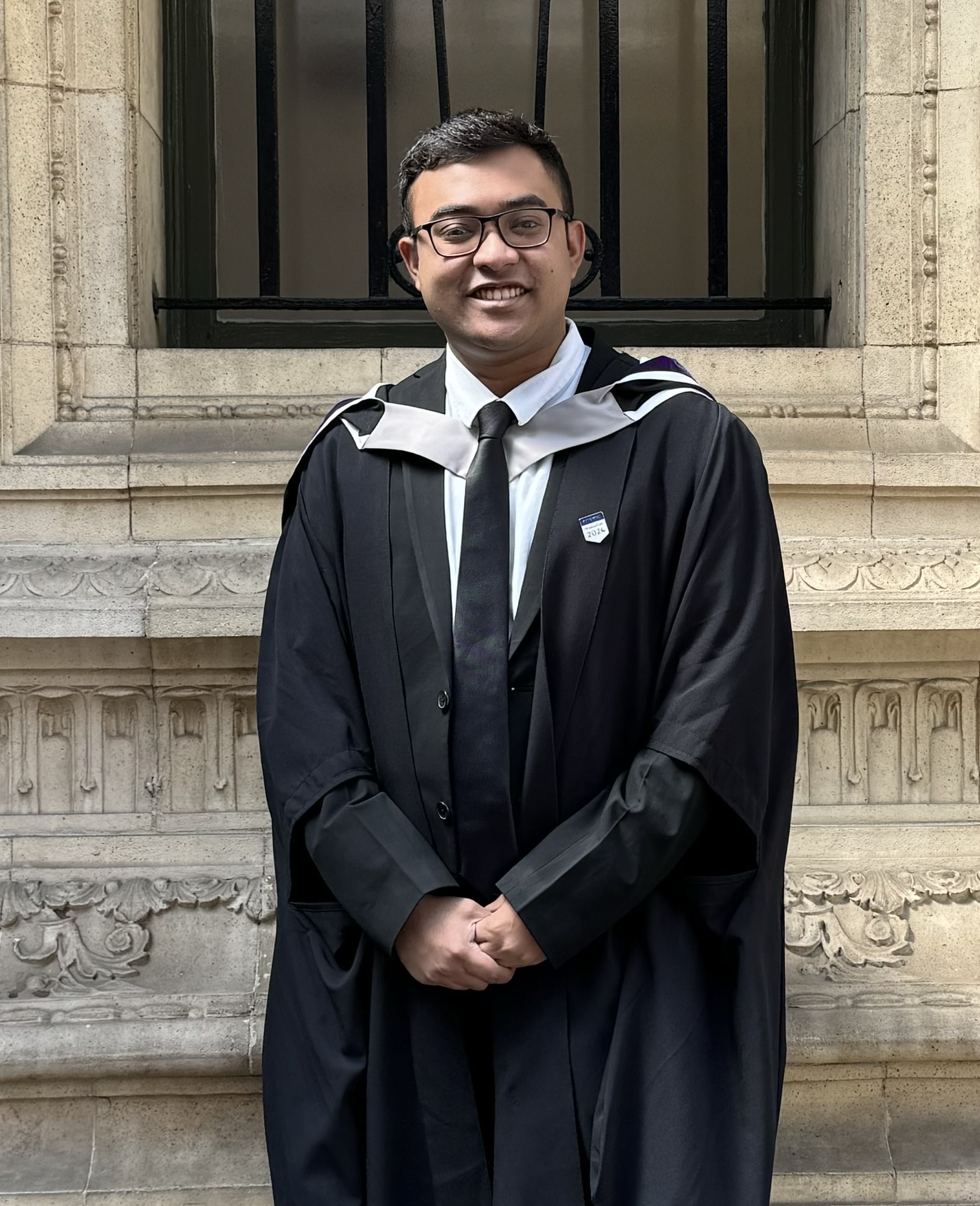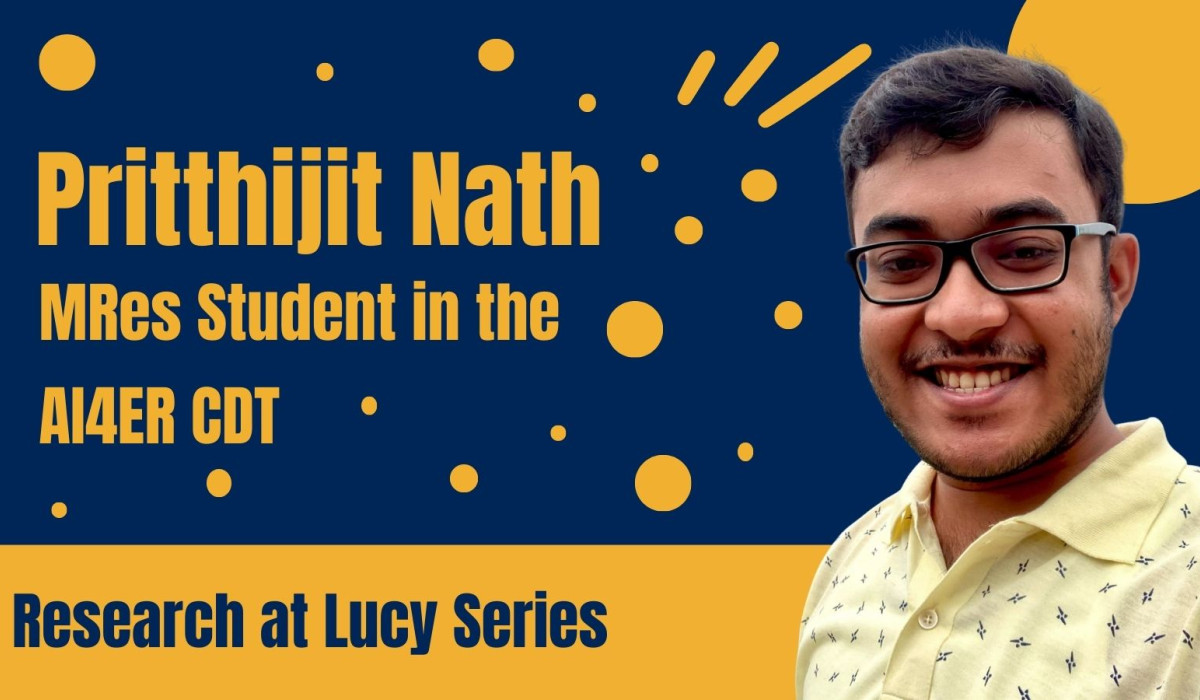This week we speak with Pritthijit, who tells us about his research, which focuses on integrating AI and climate modelling.
Hi Pritthijit! To begin, can you tell me a bit about yourself, where you are from, and your time at University?
Of course! I was born and raised in Kolkata, a city rich in history and culture. My mother is a historian, and my father is a geologist, and both their academic backgrounds really influenced my upbringing and current interests.
From a young age, I was fascinated by mathematics. It was always my favourite subject and I loved looking at trends and solving problems. However, in India, there is a lot of pressure to study engineering or medicine and these expectations led me to prepare for engineering entrance exams. I did incredibly well in my state's engineering entrance exam, which led me to study at Jadavpur University, a top engineering school in West Bengal.
Can you tell me a bit about your master's?
Initially, I was a bit reluctant about engineering, but I found a way to align my passion for mathematics with my engineering studies by specializing in computer science. For me, it was the closest thing to math! I really enjoyed my undergraduate program, and I had access to resources from around the world. To me, studying computer science really felt like applied math, which I loved!
It was during my undergrad studies, I stumbled upon a program that used AI to address climate problems. This was particularly relevant after witnessing the devastating impact of Cyclone Amphan in Kolkata in 2020. Seeing the destruction firsthand made me realize the importance of accurate climate predictions. So, I decided to pursue a Master's degree at Imperial College London, specializing in AI and machine learning. My thesis focused on predicting cyclones using Diffusion models and it was very close to home, given my personal experiences with cyclones. My project was also well-received, and at the end of my master’s I was awarded a distinguished project status.
Can you tell me about your current work and what you will work on for your PhD?
Absolutely! Now at Cambridge, I'm focusing mainly on climate modelling and working with the Met Office to improve weather and climate models using reinforcement learning. The main goal of my current project is to improve parametrizations in weather and climate models. Parametrizations are used in these models to represent processes that are too small-scale or complex to be physically resolved and by integrating AI, I aim to make these models more accurate and reliable.
The climate model that we currently use have two parts: simulations, which we understand well, and parameters, which are less understood. In my research I use AI to adjust these parameters dynamically while traditional methods often use fixed parameters or adjust them manually, leading to inefficiencies. With reinforcement learning, we can make these adjustments in real-time, based on the signal we receive.
That sounds fascinating. Can you elaborate on the broader impact of your work?
Sure, there's a significant debate in the climate modelling community right now. On one side, you have big tech companies like Google DeepMind, Microsoft Research and NVIDIA, advocating for AI-driven models that replace traditional methods. They believe that with enough data and compute, AI can do a better job. On the other side, institutions like the Met Office , ECMWF andNOAA argue for integrating AI with existing physics-based models. They have spent decades refining these models, and they see AI as a tool to enhance, not replace, their work.
My work aligns with the latter approach. By integrating AI with traditional models, we can improve the accuracy of weather predictions without discarding the valuable work done over the years. This integration helps in making our predictions more reliable and efficient.
I also have a deep love for history, largely influenced by my mother. Growing up, I was surrounded by stories of historical events and their impacts on society. This has given me a unique perspective on how past events shape our present and future. For instance, understanding the historical impact of cyclones in India and how they have shaped policies and societies over time has been crucial in my research. It’s not just about predicting weather; it’s about understanding its broader implications.
My father, being a geologist, also instilled in me an appreciation for the natural world and its complexities. This blend of history and geology has made me keenly aware of the importance of interdisciplinary approaches. In my current work, this perspective helps me see beyond the numbers and algorithms. It reminds me that our models and predictions have real-world implications, affecting lives and livelihoods.
Thank you Pritthijit for sharing your research with us!





